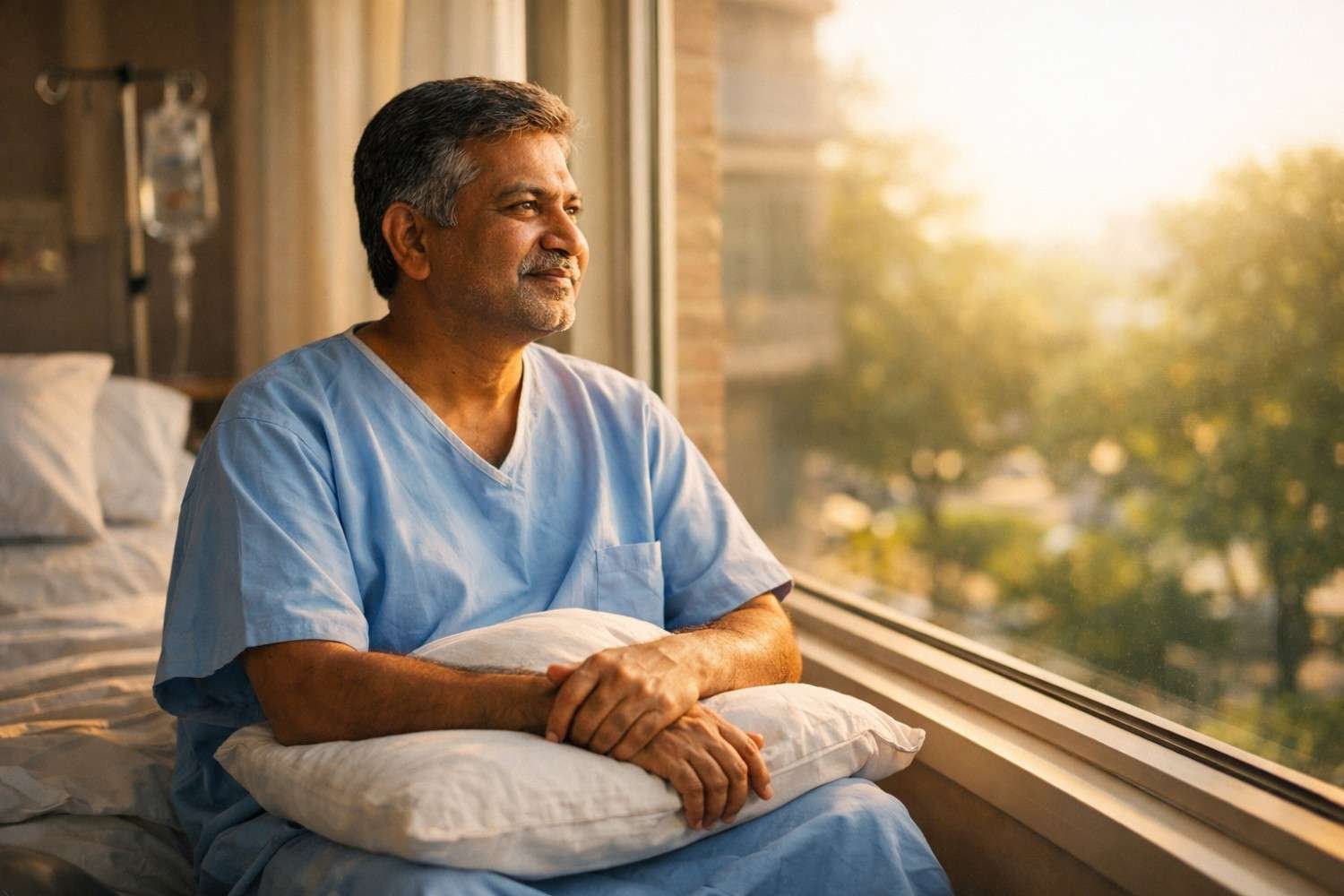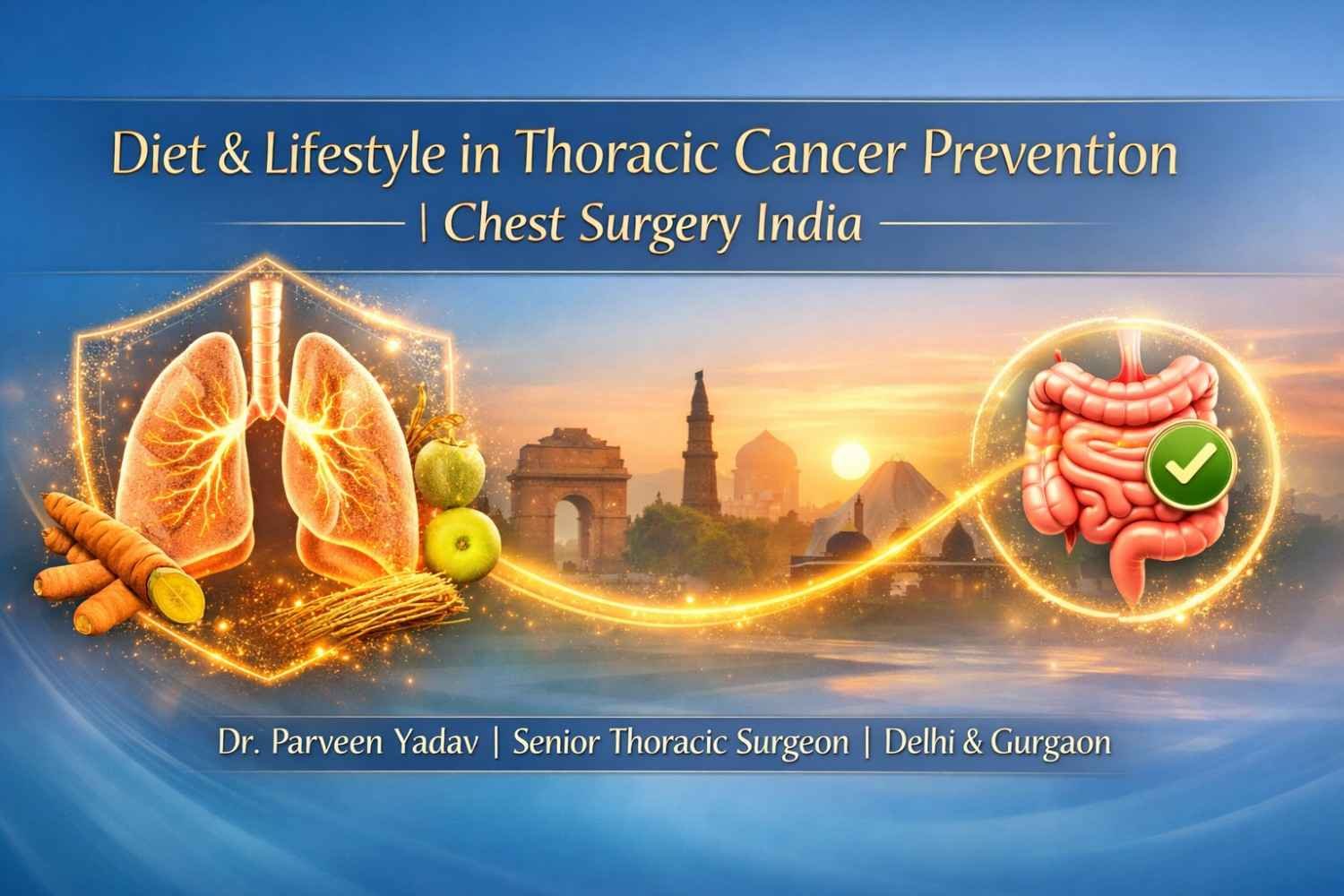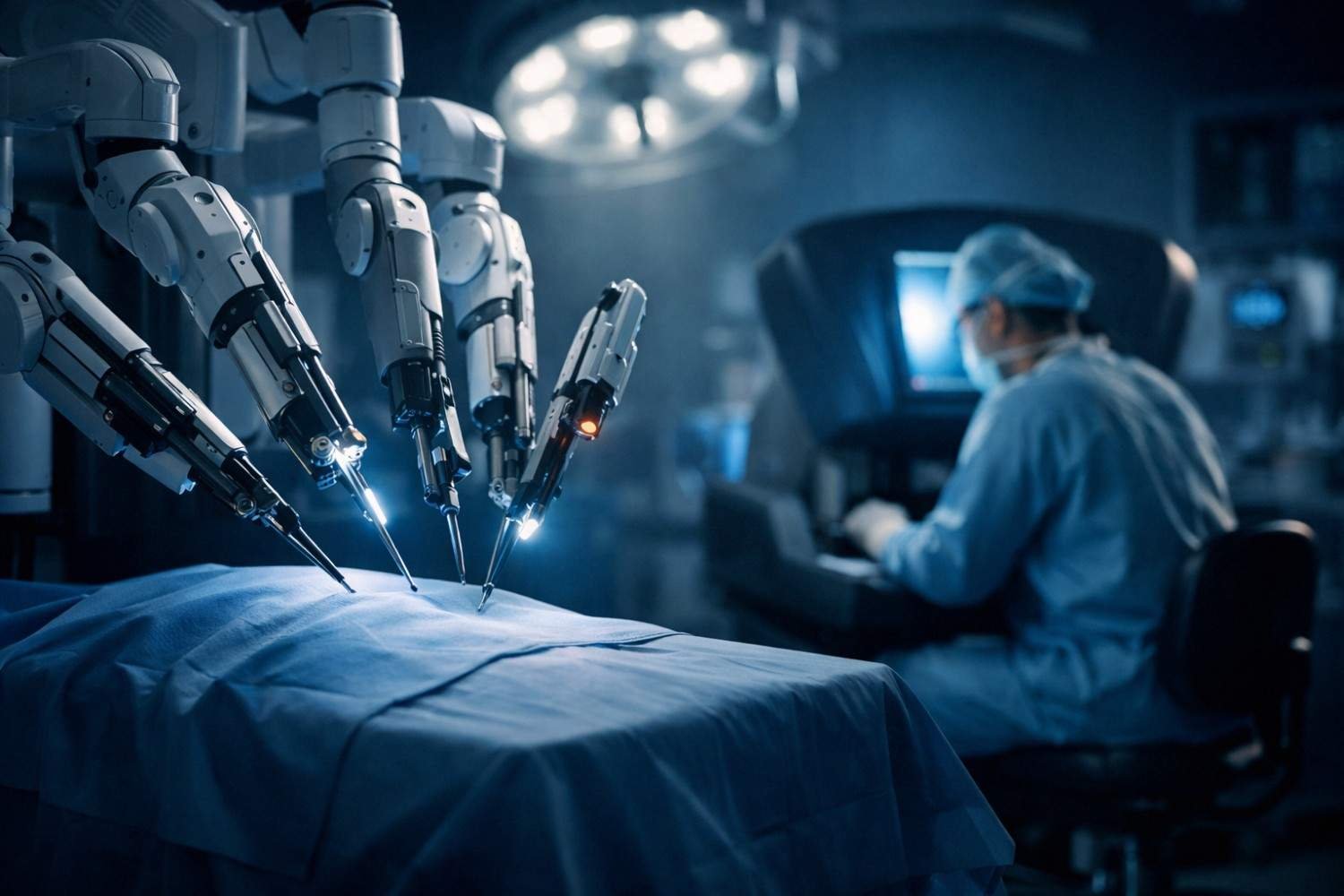

Esophageal cancer and Gastroesophageal Reflux Disease (GERD) are two conditions that affect the esophagus, the tube that serves food from your mouth to your stomach. Though they share some symptoms, their implications and treatments are vastly different. This blog will cover the differences between these two conditions, focusing on symptoms, risk factors, diagnosis, and treatment options, explicitly addressing resources in Gurgaon, Delhi.
Gastroesophageal Reflux Disease, or GERD, is a chronic digestive disorder where stomach acid or, occasionally, bile flows back (refluxes) into the esophagus. This tube connects the mouth to the stomach.
If left untreated, GERD can lead to severe complications like esophageal ulcers, esophagitis, and even Barrett's esophagus, a condition that may increase the risk of developing esophageal cancer.
Esophageal cancer that affects the tissues in the esophagus. It is classified into two main types: squamous cell carcinoma, which is more common globally and adenocarcinoma, which is more common in the Western world.
While both GERD and esophageal cancer involve the esophagus and can share symptoms like heartburn and swallowing difficulties, they differ significantly:
It is crucial to understand the differences between GERD and heartburn for early detection and effective management, significantly since long-standing GERD can increase the risk of esophageal cancer. Medical intervention is essential for persistent reflux symptoms.
GERD is primarily caused by frequent acid reflux that damages the lining of the esophagus. Factors contributing to GERD include obesity, smoking, and a diet high in fats and spices.
In contrast, long-standing GERD can trigger esophageal cancer, but other risk factors like heavy alcohol use, smoking, and dietary deficiencies play significant roles.
Preventing GERD involves lifestyle changes like eating smaller meals, avoiding late-night eating, and reducing foods that trigger reflux. Preventing esophageal cancer consists of managing risk factors such as quitting smoking, controlling acid reflux, and maintaining a healthy weight.
Early detection plays an essential role in effectively managing both conditions. Regular check-ups and monitoring of symptoms can lead to early diagnosis and significantly better outcomes, especially for esophageal cancer.
If you're dealing with persistent GERD symptoms or have concerns about esophageal cancer, it's crucial to consult specialists who can offer tailored treatment. The region of Gurgaon, Delhi, has notable healthcare facilities with advanced resources for treating these conditions. Whether it's seeking esophageal cancer treatment in Gurgaon, Delhi, or managing GERD, specialised medical care is imperative.
While GERD and esophageal cancer might share some superficial similarities in symptoms, they are fundamentally different in terms of severity, progression, and treatment. It is necessary for individuals experiencing persistent symptoms of GERD to seek medical advice to prevent complications or progression to cancer. In Gurgaon, Delhi, patients have the privilege of accessing some of the top specialists like Dr. Parveen Yadav at Chest Surgery India, who provide focused care with an array of treatment options tailored to improve outcomes and enhance the quality of life for patients battling esophageal cancer.
By understanding the differences and available treatments, patients can better navigate their health choices, especially when seeking esophageal cancer treatment in Gurgaon.
1. What are common symptoms of esophageal cancer?
Ans: Common symptoms include difficulty swallowing, unexplained weight loss, persistent chest pain, and worsening heartburn.
2. Can long-term GERD lead to esophageal cancer?
Ans: Yes, chronic GERD can increase the risk of esophageal cancer, particularly adenocarcinoma, through a condition called Barrett's esophagus.
3. What are the diagnostic methods for esophageal cancer?
Ans: Esophageal cancer is diagnosed using endoscopy with biopsy and imaging tests like CT scans to determine the extent of the disease.
4. What lifestyle modifications can help manage GERD symptoms?
Ans: Changes include:
5. Is esophageal cancer treatable if detected early?
Ans: Yes, when caught early, esophageal cancer treatments like surgery, radiation, and chemotherapy can be effective.
6. How can I distinguish between symptoms of GERD and esophageal cancer?
Ans: While symptoms can overlap, persistent or worsening symptoms like weight loss and severe swallowing difficulty warrant evaluation for esophageal cancer.
Dr. Parveen Yadav is a highly recommended surgeon or specialist for esophageal cancer treatment in Gurgaon. He specialises in minimally invasive and robotic thoracic onco surgery. He has been recognised for 17+ years as the best chest surgeon in Gurgaon, Delhi, for his expertise in treating chest-related (Chest Surgery) ailments, such as Esophageal (Food Pipe Cancer), Lung, Tracheal (Throat), Chest wall tumours, Mediastinal Tumours, Empyema, and Bronchopleural Fistula cancer. With a focus on precision and innovation, he is dedicated to offering exceptional care to his patients, utilising advanced techniques to ensure optimal outcomes.

18+ Yrs Exp | 5,700+ Thoracic & Robotic Cancer Surgeries
Dr. Parveen Yadav is a Director and Senior Consultant in Thoracic and Surgical Oncology, specializing in minimally invasive and robotic lung and esophageal surgeries, with advanced training from AIIMS and Tata Memorial Hospital.
View Full Profile Pain After Thoracic Surgery: Tips for Smooth Recovery
Pain After Thoracic Surgery: Tips for Smooth Recovery
 Diet & Lifestyle for Thoracic Cancer Prevention | Dr. Parveen Yadav
Diet & Lifestyle for Thoracic Cancer Prevention | Dr. Parveen Yadav
 Robotic Thoracic Surgery: How Da Vinci Technology is Revolutionizing Chest Procedures
Robotic Thoracic Surgery: How Da Vinci Technology is Revolutionizing Chest Procedures
Struggling with pain after chest surgery? Dr. Parveen Yadav shares expert recovery tips, causes of shoulder pain, PTPS signs, and what your discharge sheet won't tell you.
Discover how diet, breathing exercises & daily habits help prevent and recover from thoracic cancer. Expert insights from Dr. Parveen Yadav, Chest Surgery India
Discover how Da Vinci robotic surgery is transforming chest procedures in Gurgaon. Less pain, faster recovery & expert care by a certified thoracic surgeon
Copyright 2026 © Dr .Parveen Yadav all rights reserved.
Proudly Scaled by Public Media Solution!